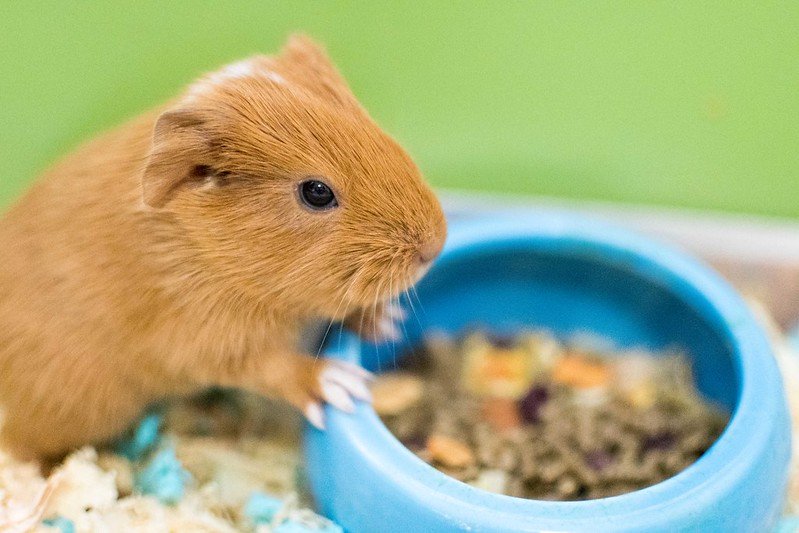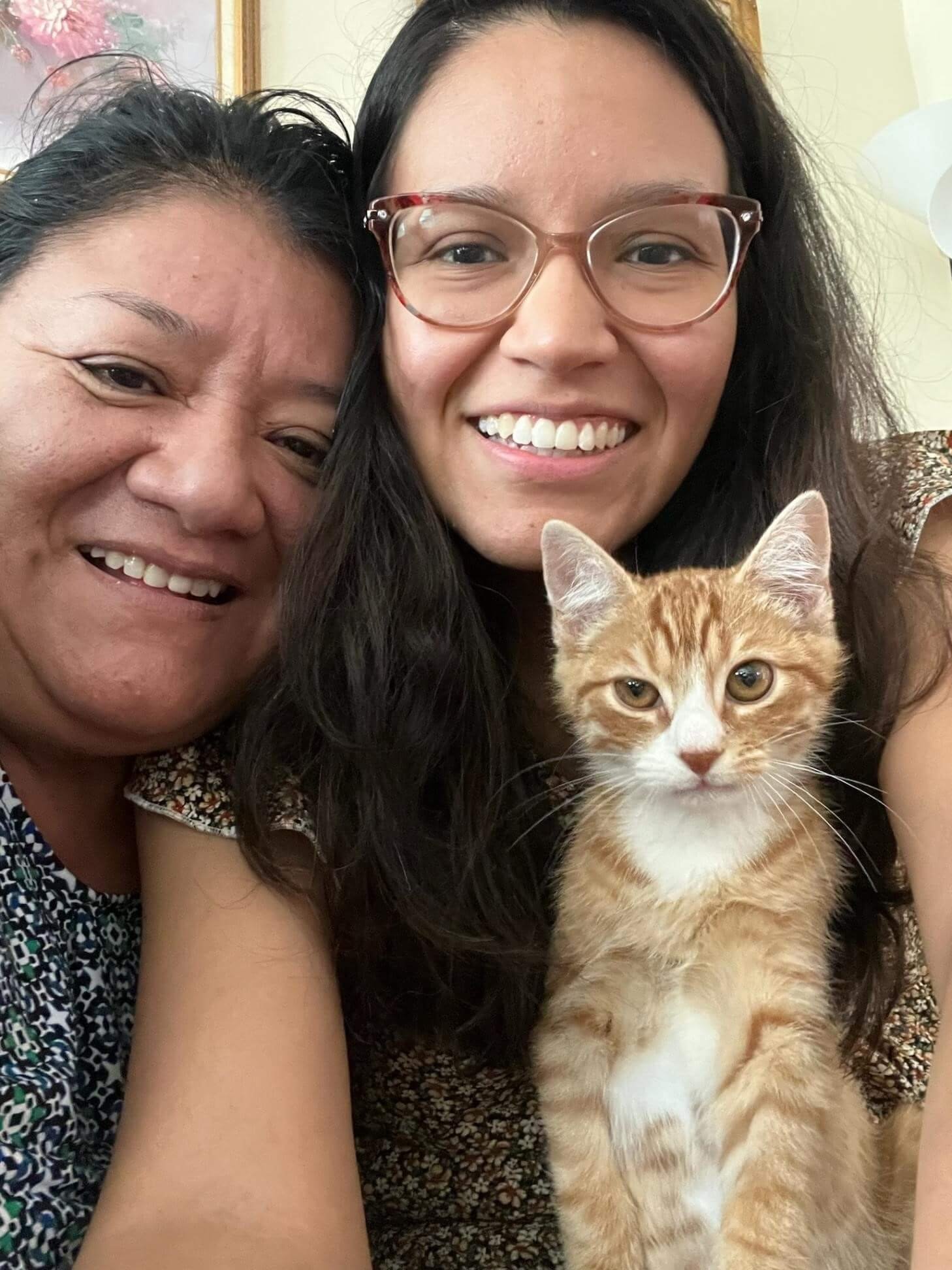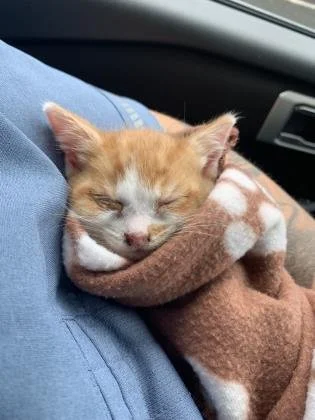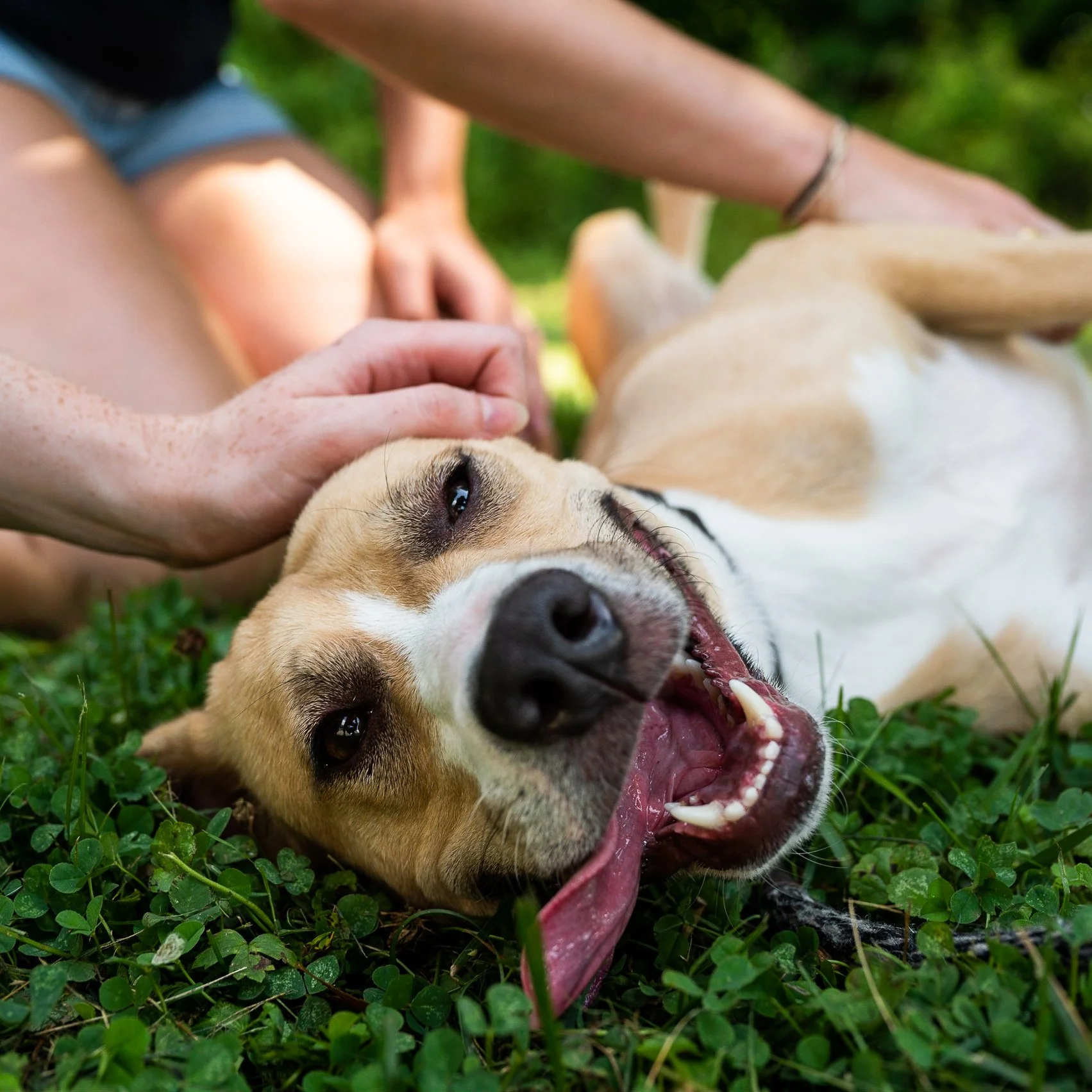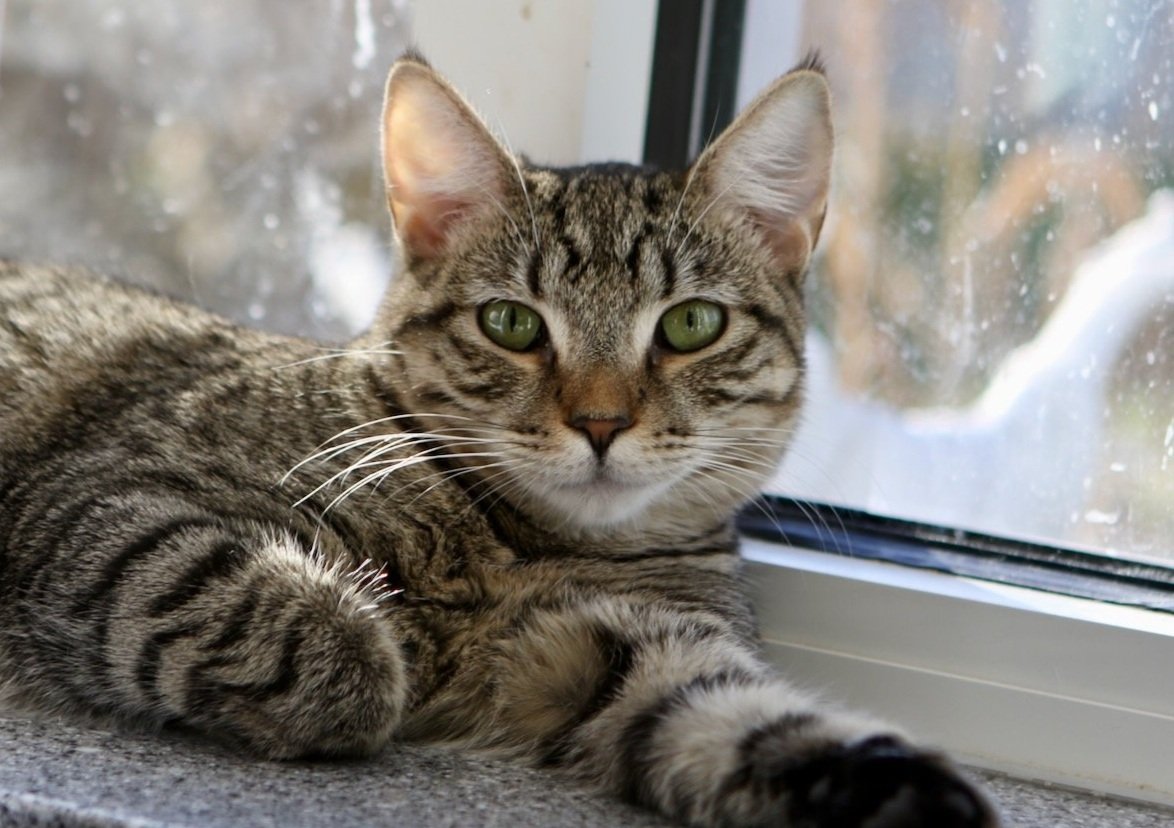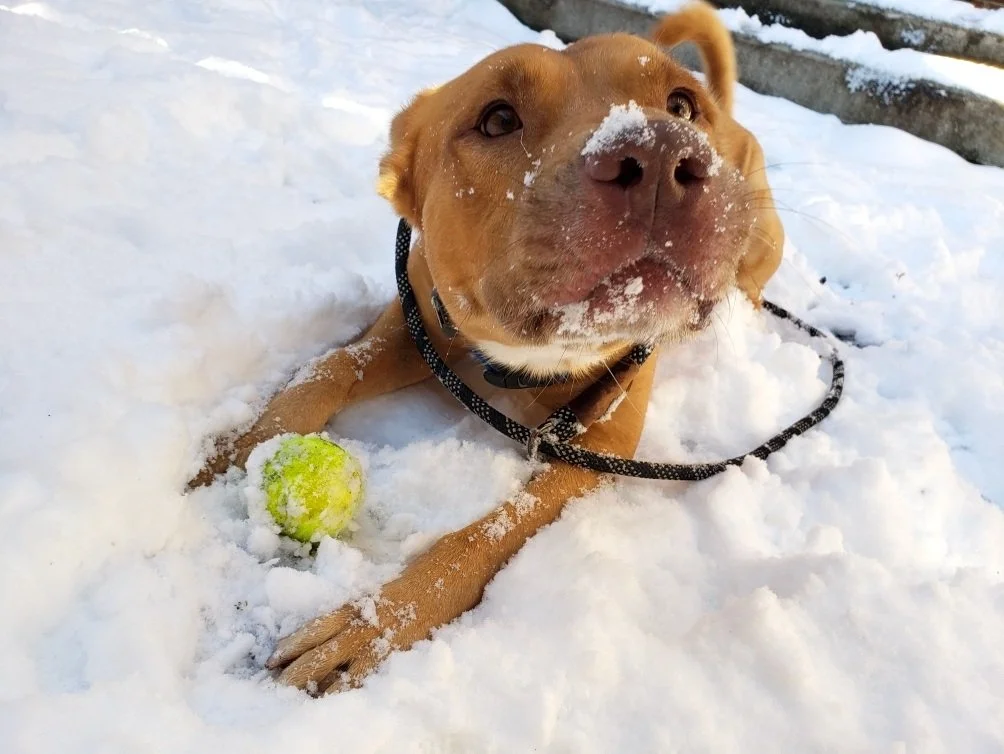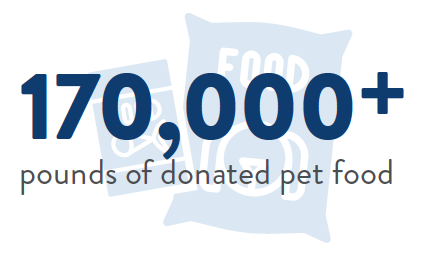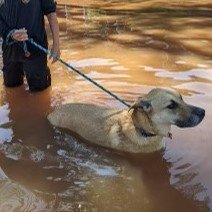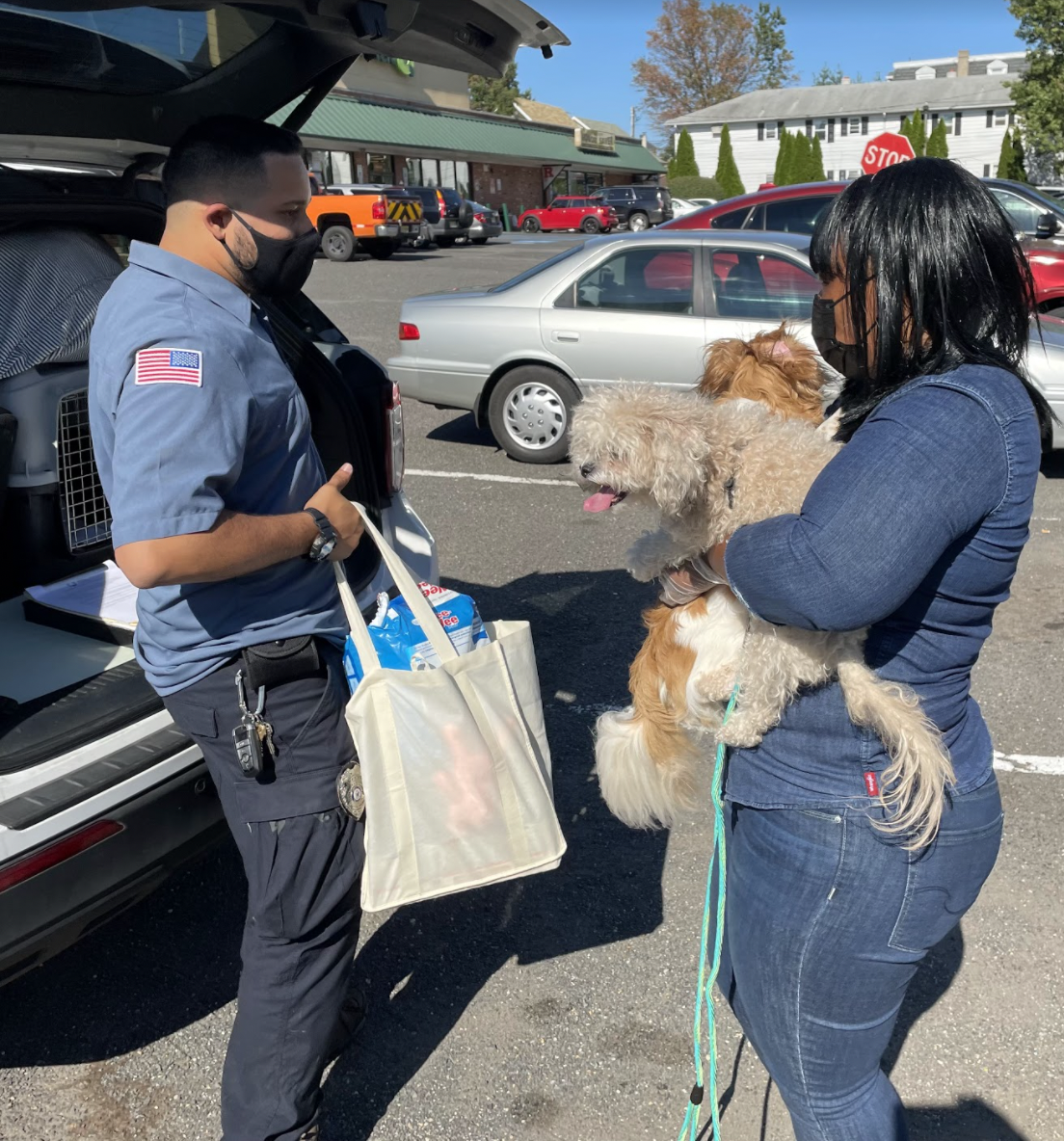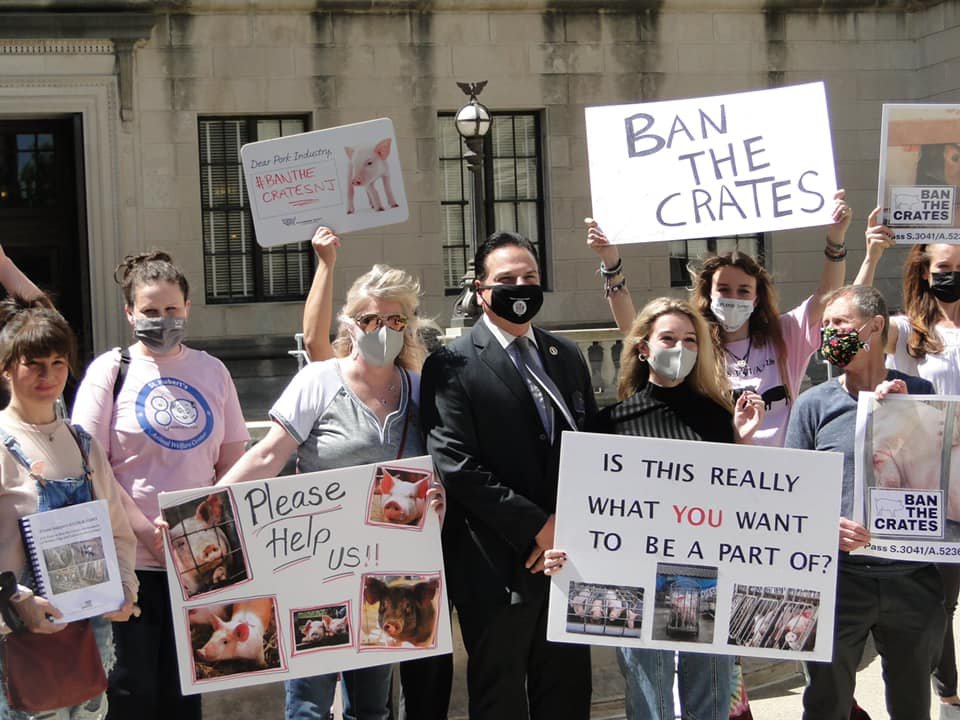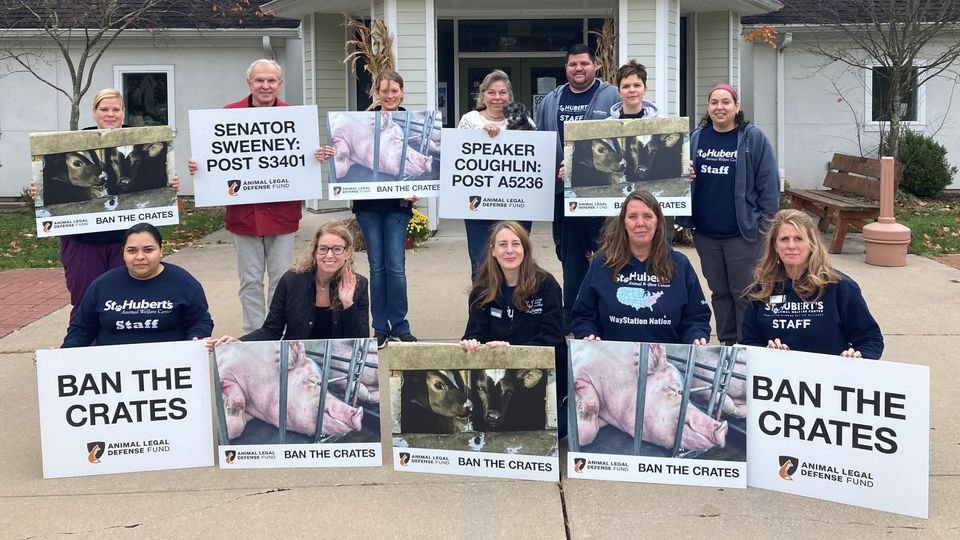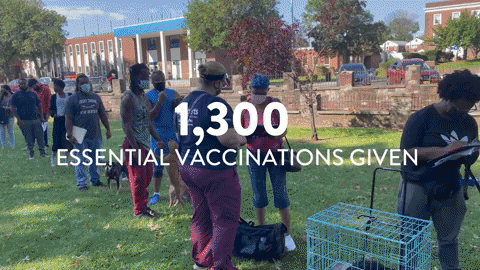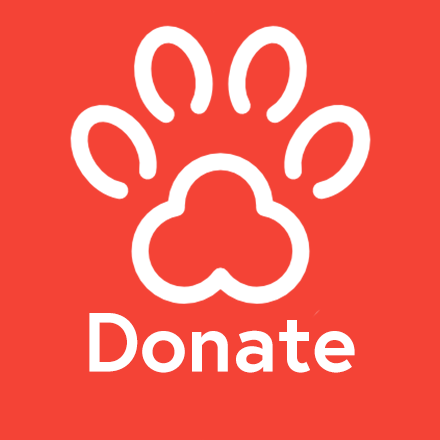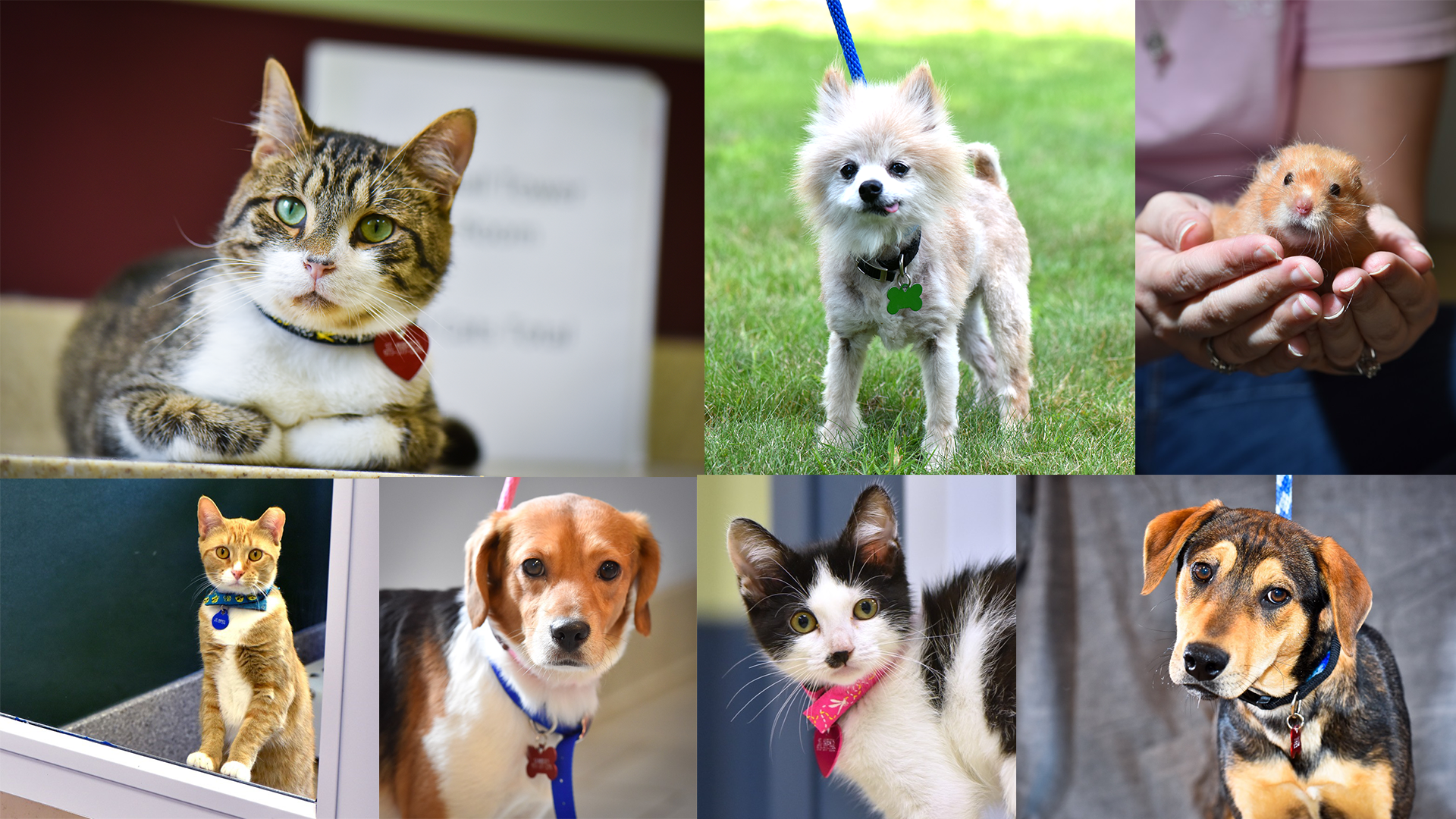
LATEST NEWS
How to Keep Your Pets Safe During Outdoor Air Quality Alert
Just like people, our pets can be affected by unhealthy air quality caused by wildfire smoke. If you feel the effects of smoke, they probably do too. Here’s how to protect your pet from unhealthy air.
High Risk Factors
Certain animals are especially at risk from smoke and should be closely monitored during all periods of poor air quality, including:
Animals with heart or lung disease.
Older pets.
Brachycephalic dog breeds (breeds with short muzzles), such as French bulldogs, Pekingese, pugs, Boston terriers and boxers.
How to Protect Your Pet
Keep pets indoors as much as possible with doors and windows shut.
Bring outdoor pets indoors to a room with good ventilation.
Limit walks to short bathroom breaks and avoid intense outdoor exercise.
Birds should not be allowed outside when smoke is present, as they are especially susceptible.
Have an emergency preparedness kit ready for your pet in case you need to evacuate.
Know the Signs
Consult your veterinarian if your pet experiences any of the following signs of smoke irritation:
Coughing or gagging
Difficulty breathing, including open mouth breathing, increased noise when breathing, or fast breathing
Red, watery, or irritated eyes
Inflammation of the throat or mouth
Nasal discharge
Asthma-like symptoms
Fatigue or weakness
Disorientation and stumbling
Reduced appetite and/or thirst
The increased time spent indoors with limited opportunities for physical and mental stimulation can result in dogs experiencing boredom. To help occupy your pet, engage him or her in activities like playing fetch in a long hallway, using puzzle toys (like this DIY snuffle mat), or teaching your pet a new trick to provide mental stimulation.
Everything You Need to Know About Guinea Pigs
Guinea pigs are wonderful animals who can make great companions for a variety of families; they’re gentle, tiny and have amazing personalities. Not to mention every single one of them is as cute as a button! Here are key facts about them to help you determine whether you should adopt a guinea pig into your family.
Is a guinea pig the right pet for me?
Will they want to spend time with me?
Absolutely! Guinea pigs get to know their people, get excited to see them and love to spend time with their family.
What about with my children?
Guinea pigs tend to be one of the better pet choices for families with children who are looking for a small companion. Like all small animals, guinea pigs can be fragile and easily startled, so an adult should always supervise and guide children when they are handling them. Keep in mind: although many children love these fuzzy little potatoes with legs, sometimes they lose interest and ultimately it will be the adult’s responsibility to make sure they are loved and cared for.
Guinea pigs are not a low-maintenance animal.
Guinea pigs can poop up to 100 times a day per pig. Their cage will need to be spot cleaned daily to keep it tidy.
Guinea pigs are not always quiet.
Although they are relatively quiet animals, guinea pigs do get very excited over their people and treats and love to let their people know they are there.
When are they awake?
Guinea pigs are awake throughout the day and night. While typically they are not too noisy at night, they may run around a bit. They prefer to take naps in between play and mealtime.
What about allergies?
Although it is possible to be allergic to guinea pigs, people are more commonly allergic to hay or pollen which is a necessary part of their diet.
How are they with other pets?
Guinea pigs do not tend to mind other pets, although they should never be allowed to interact with another species without supervision as there is always a risk involved.
What is their lifespan?
On average, guinea pigs live five to seven years.
Guinea pig needs
A guinea pig friend.
That’s right, guinea pigs for the most part need a friend! Guinea pigs are social animals and live in herds in the wild. To prevent accidental babies, guinea pigs should be kept in same-gender pairs or groups unless they are spayed or neutered.
A wide area to run around.
Guinea pigs love to have space to run around and play. They require unbroken floor space; they are not climbing critters! Females need about 7.5 square feet of unbroken floor space for a pair, while males need about 10 square feet of unbroken floor space per pair.
Lots of food.
Guinea pigs are constantly munching away and it’s important they always have access to food. We recommend they have unlimited access to timothy hay (or orchard grass) and about one cup of vegetables per day. Variety is amazing for their diets, and lots of different colors and types of vegetables are good for them. High-quality pellets are also great for guinea pigs, in moderation. A pig should have about 1/8 cup of pellets per day.
Water source.
Guinea pigs, like all animals, need access to water. While water bottles conveniently hang on the side of their cage and are easy to fill, sometimes the water can get stuck. A water dish gives them a more natural way to drink water (although it can be a bit messy).
Rather than purchasing a guinea pig from a pet store and creating a bigger demand for this small animal, we strongly encourage people to adopt one (or two!) from their local shelter. St. Hubert’s often has guinea pigs available for adoption.
2022: A Year in Review
A Message from Lisa LaFontaine
In 2022, the team at St. Hubert’s Animal Welfare Center has focused on providing compassionate, lifesaving, and life-changing care to the more than 5,100 animals who came through our doors. It has also been a time of innovation, growth, and expansion. Our mission includes multiple priorities – to advocate and care for animals, to help more animals stay with the families who love them, and to help build communities in which the love of animals can thrive.
click here to watch the 2022 ANNUAL HIGHLIGHTS REVIEW WITH OUR PRESIDENT AND CEO LISA LAFONTAINE.
We support our communities through education, outreach, and direct service. This year, we expanded our community programs to serve families with limited resources, survivors of domestic violence, and young people seeking a career in animal welfare. Our work is done extensively in “pet service deserts” – areas that lack access to pet stores, veterinary clinics, and more. We go into these communities to ensure that no one is prevented from experiencing the joy and companionship of an animal simply because they are economically or socially vulnerable. Read the full 2022 Annual Highlights Report.
Photo Credit: The Dogist
At all times, we are driven by a commitment to strengthen the human-animal bond and improve the lives of our community members.
And importantly, the impact of St. Hubert’s reaches far beyond New Jersey.
We encourage you to sit back with a warm beverage and your favorite pet(s) by your side to read about the many ways that your partnership with St. Hubert’s transformed the lives of people and animals this year.
You will find that:
St. Hubert’s served all animals who came through our doors, regardless of their age, temperament, or medical condition.
We provided financial assistance, medical care, food, and supplies to keep animals healthy and in their loving homes.
Our dedicated team helped to build new families through adoption.
The WayStation celebrated its 20,000th lifesaving rescue!
Innovative programs and resources kept animals – pets, farm animals, and wildlife – safe and healthy.
We visited communities near and far to respond during natural disasters.
What you’ll also find is endless gratitude – for the animals and people who welcome us into their lives, for our community of supporters who share their time and talents and enable us to fulfill our mission, and for our staff and volunteers who show up every day ready to do the work to protect animals and support families.
Saving Lives and Building Capacity, One Precious Animal at a Time
The St. Hubert’s WayStation program strives to make lasting impacts in communities struggling under the weight of overpopulation. We also are there to help our partner shelters in times of crisis.
Through flight and vehicle transport, our WayStation moves animals from “source” partners, located in areas where the number of homeless dogs far exceeds the available homes, to “destination” partners, located in areas with far more adoption opportunities. Just as important, each destination partner returns a portion of the adoption fee for every relocated dog to the source shelter. These funds can be invested in capacity-building initiatives to help address the root causes of overpopulation in those regions.
Responding to Disasters and Assisting Sister Shelters in Need
In the aftermath of Hurricane Ian, nearly 90 shelter pets from Florida were airlifted by Greater Good Charities to St. Hubert’s. These dogs and cats were in shelters prior to the storm. This lifesaving airlift helped to make space in the hurricane-stricken communities for the influx of homeless or surrendered animals at Florida shelters. This special flight included shelter pets from Naples and Fort Myers, two of the hardest hit areas in Florida.
The St. Hubert’s transport team worked with organizations in nine states to evacuate more than 140 dogs and cats who had been awaiting adoption in overcrowded Louisiana and Alabama shelters. The airlift included especially vulnerable animals, such as asymptomatic heartworm-positive dogs, homeless cats, and harder-to-place large dogs.
Our team traveled to South Carolina to help our longtime partner the Humane Society of Greenwood during a particularly challenging time. Because it doesn’t have a dedicated surgeon, we stepped in to perform more than 150 spay and neuter surgeries. We also brought back 27 animals who ultimately found loving new homes in the Northeast!
20,000 Lives Saved through the WayStation
In August 2022, our WayStation celebrated an important milestone: We welcomed our 20,000th animal from an overcrowded shelter in Louisiana. Sweetie Johnson will never know she was the 20,000th rescue – but she knows she is now part of a loving family. This milestone flight was a core example of how our WayStation program works with overburdened shelters to save more precious lives.
Keeping People and Pets Together
Our Pet Help Center serves as a single point of entry for pet owners navigating systemic or economic challenges that put their relationships with their pets at risk. Our case managers practice a whole-family approach to ensure that families trying to keep their pets can do so. Our programs also help to address the pet resource inequity that exists in our community.
We offer pet families the following free and low-cost services, including:
A Pet Pantry with plentiful pet food and supplies
Medical services that include emergency medical and preventive care as well as spaying and neutering
A Safe Haven pet boarding program to help families during periods of emergency transition
Meet Moses
Moses had a tough start to life. He was found wandering the streets of Linden alone and suffering from an infected and fractured left leg. The community member who found the 10-week-old stray wanted to help him but couldn’t afford the veterinary care – so she brought him to St. Hubert’s. Thankfully, we were there to help. Moses’s injury was so serious that we had to amputate his leg and help him adjust to his new reality. Fortunately, there was a loving home awaiting him. His new family tells us that Moses has been a true blessing in their lives and has quickly adjusted to life as a “tri-paw.”
Caring for Homeless Animals
The mission of St. Hubert’s is to care for all animals, including senior animals and those with special medical needs. Our team works diligently every day to ensure these animals are loved, tended to, and placed in loving homes.
Caring for these precious animals comes at a higher cost, which is why we created the Rocket Fund (for emergency medical needs) and the Red Collar Society (for senior animals). These special funds help us raise the money necessary to ensure these animals can receive the specialized care, surgery, and medicine to help them heal and recover.
Meet Mango
Mango was found drowning in a storm drain as torrential rain poured down. Our team rescued her from the flood waters and brought her to our kitten neonatal intensive care unit. There, she was treated for both an upper respiratory infection and eye infection. Mango was so vulnerable that she had to be syringe-fed until she could eat on her own. As she grew stronger and healthier, her true personality began shining through. This highly social kitten basked in the love she was receiving from our staff. After spending more than five weeks recovering in the nursery, Mango was adopted into a loving home.
Meet Buzz
Buzz hails from Greenwood, South Carolina, where he was found on a hot summer day smooshed underneath nine other dogs in a crate in the back of a pickup truck. Because the number of adoptable animals far exceeds the number of available homes in Greenwood, we transported him (along with 27 other animals) to St. Hubert’s for adoption via our WayStation program. Despite what Buzz had endured, it was clear from the nonstop kisses he gave our staff that his love for people never wavered. It wasn’t long before he found a loving new family for him to spoil with his unconditional love.
Photo Credit: The Dogist
Meet Queen Prada
Two-year-old Queen Prada came to St. Hubert’s as a stray who was nursing two kittens. To make things more complicated, the whole little family was suffering from ringworm. Queen Prada and her babies were quickly placed with a foster home that could provide specialty care; these higher-need kitties required semiweekly baths, daily medications, and some bottle feeding. But, of course, dealing with ringworm was the most arduous process. The baths smell awful (like rotten eggs), and the room has to be cleaned daily. But after weeks of careful love, care, and attention, Queen Prada and her babies are all healthy and have all gone to loving homes.
A Preview of 2023
Through your support and generosity, our team will help more animals, support more families, and launch impactful programs to build the capacity of animal welfare organizations throughout the country.
Pet Support Services: People throughout New Jersey face barriers to providing care for their animal family members, starting with unaffordable and inaccessible veterinary care. Our growing Pet Help Center will continue to address urgent needs through direct service for thousands of pet families throughout the region. And we will enhance our suite of virtual support services to reach families outside of the areas that we serve, from their own homes.
National Capacity Building: In 2023, we will expand capacity-building programs to help shelters throughout the country. These supportive programs will enable source shelter partners to develop successful lifesaving programs using the space and resources that are available to them. We will continue to share tangible resources, including housing and sheltering equipment, food, toys, and other critical resources.
As we look ahead, we see a future that is brighter than ever for animals and the people who cherish them. We couldn’t get there without your steadfast support and generosity, and we are grateful from the bottom of our hearts.
How to keep pets safe in cold weather
As the temperature drops into the 30s, it’s time for some helpful reminders for pet parents about how to protect your pets during cold weather. Taking a few extra precautions can help keep your beloved companion safe and warm during the winter months.
Limit your pet’s time outside during extreme temperatures. If it’s too cold for you, it’s likely too cold for your pet. Similar to humans, pets are also susceptible to frostbite and hypothermia.
Protect your pet’s paws from irritation caused by salt and other chemicals by applying products such as petroleum jelly or Musher’s Secret before heading outside. These products create a wax-like barrier that hydrates and safeguards your pet’s paws from the elements. If your pet will allow them, boots provide even more coverage and can also prevent sand and salt from getting lodged between bare toes.
After each walk, wash your pet’s feet and abdomen with warm water and towel dry to prevent further irritation from salt, ice, and other harmful chemicals. Check for any redness and cracks on the paw pad and in between the toes.
Never let your dog off the leash on snow or ice, especially during a snowstorm. Dogs frequently lose their scent in snow and ice and easily become lost. More dogs are lost during the winter than during any other season.
Antifreeze, used to protect your car during the winter months, is poisonous and often deadly when ingested by pets. Recognize the signs of antifreeze poisoning and prevent accidental ingestion by thoroughly mopping up any spills.
Use pet-friendly ice melts to help protect your pet’s paws.
Avoid cutting your dog’s hair during the winter. Longer coats provide more warmth. Trim long-haired companions to minimize the clinging of snow and ice.
If your dog is short-haired, consider getting him a coat or sweater with coverage from the base of the tail to the belly.
Provide your pet with a warm place to sleep that is off of the floor and away from all drafts.
New Jersey requires proper shelter if animals will be outside for longer than 30 minutes in freezing conditions.
Disaster Relief Efforts
In the aftermath of Hurricane Ian, nearly 90 shelter pets from Florida were airlifted to New Jersey on October 2.
This life-saving airlift transported dogs and cats who were in shelters prior to the storm. It will help make room for an expected influx of homeless or surrendered pets at Florida shelters.
36 dogs and 54 cats were flown to Morristown, New Jersey and received by over a dozen rescue organizations up north, including St. Hubert’s Animal Welfare Center.
As part of its disaster relief efforts, St. Hubert’s also received a transport of dogs on September 29 from Puerto Rico, which had been battered by Hurricane Fiona.
20,000 Dogs Saved
The St. Hubert’s WayStation transport program celebrated a huge milestone. In August 2022, our team welcomed our 20,000th dog! That means 20,000 animals have been relocated for adoption since the start of the program in August 2016.
The 20,000th dog, named Sweetie Johnson, is an adorable five-year-old terrier mix from Iberville Parish Animal Shelter in Louisiana. Everyone cheered as she made her appearance at the Morristown Airport in a crate decorated with pinwheels and streamers. Our staff and volunteers then celebrated back at the shelter with some sweet treats for both people and our adoptable pups.
A big thank you to our partners Greater Good Charities and to PetSmart Charities for their support of the WayStation program. We couldn’t do this lifesaving work without you!
Submit your Love Story to help St. Hubert’s earn $100K
Has your St. Hubert’s adopted pet changed your life? Share how your pet has made a difference in your life to help St. Hubert’s earn up to $100,000 in lifesaving funds! Petco Love wants to know all the ways, big and small, that your adopted pet has changed your life for the better. Winning stories will receive up to a $100,000 grant award for their adoption organization.
Submit your love story by Tuesday, October 31
If you’ve adopted a pet from St. Hubert’s, and they are still living, share how your pet impacts your life for the better, every day.
Click here to submit your story and photos. You’ll be asked to:
Write your story in 500 words or less.
Visit petcolove.org/lovestories to read prior year’s winning entries and get some inspiration. Remember, good stories will show how your pet changed your life.
Upload three to four photos to support your story:
One photo of just your pet
One photo of you or your family with your pet
One or two additional photos of your choice.
VIEW ANSWERS TO FREQUENTLY ASKED QUESTIONS AT THE END OF THIS PAGE. ADDITIONAL QUESTIONS? EMAIL KROTRAMEL@STHUBERTS.ORG.
5 Myths About Big Dogs Debunked
We really like big dogs here at St. Hubert’s Animal Welfare Center…so we’re debunking five myths about dogs over 40 pounds to give our big four-legged friends the credit they deserve.
Myth #1 “Big dogs can’t live in small spaces, like apartments.”
False! Dogs of all sizes can live in apartments under the right circumstances. It’s not the size of the dog that determines how suitable they are to live in small spaces, rather it’s their energy levels and the amount of exercise and enrichment they require.
Myth #2 “It’s harder to travel when you have big dogs.”
No way! With pet sitting and boarding options readily available, traveling has never been easier for pet parents. Traveling with your large dog is an option, too, and they are more likely to keep up and keep you company on any adventure!
Myth #3 “Big dogs should NOT live with small children.”
Untrue. It’s not the weight of an animal that determines if they’re best suited to be around children but instead their temperament and energy level. Adoption counselors at St. Hubert’s will work with you to find a dog who is the right match for your family.
Myth #4 “Only small dogs can be lap dogs.”
If they think they’re a lap dog, then we couldn’t agree more. It’s just one way dogs show how much they love you.
Myth #5 “Since I can't adopt, there's not much else I can do to help.”
Totally untrue. There are so many other ways to help big dogs. Not only does St. Hubert’s provide adoption services, but we also have a robust foster program that allows people to temporarily house big dogs while they wait to get matched with a loving family of their own. Fosters get to experience the joy and companionship that comes from caring for a big dog without having to make a permanent commitment.
2021: A Year in Review
Our tagline is “Animals. People. Community.” and we use these words to express our belief that the well-being of animals, people, and communities are intertwined, and that by investing in one part of this ecosystem we uplift everyone – humans and animals.
Our team is focused on creating a more humane community where animals and the people who love them can thrive. This year, we found homes for more than 2,600 animals and moved over 3,200 animals from crisis to care through the WayStation. Through our WayStation Give Back program, we gave our transport partners $119,000 in funds to invest in their own communities, helping them to go after the root causes of pet homelessness and suffering. Together with churches, food banks, mutual aid networks, and human services organizations, we gave out 170,000 pounds of free pet food, filling 260,000 empty pet food bowls with meals.
This year we made great progress in addressing the systemic issues and barriers that cause animals to become homeless. We worked with organizations who serve the most vulnerable, building wrap-around programs and services that allowed us to help people and pets as a family unit.
Every animal we care for is part of a community that involves people, too – families, neighbors, and friends. Through your generous support, we grew our capacity to care for homeless animals, support sister shelters, and serve communities near and far. Here are just a few of the amazing animals and people who are central to our work and our mission. Read the full 2021 Year-End Review.
Investing in ANIMALS
Emergency Cat Rescue
In June, St. Hubert’s received a call about a foul odor emanating from a home in South Bound Brook. Animal control officers discovered an extraordinary number of cats living in deplorable conditions. Mounds of household items and trash were piled up throughout the house. Feces littered the floor, and the smell of ammonia from feline urine, which is hazardous to animals and humans, filled the home.
After the homeowner agreed to surrender the cats, our officers began rescuing the felines as quickly and as gently as possible. Staff worked around the clock to evaluate and treat all the cats. Most were malnourished. Many had upper respiratory infections, chronic eye issues, tapeworms, and gastrointestinal parasites. All were severely infested with fleas. In total, after weeks of humanely trapping, they rescued more than 130 cats and kittens.
Most of the cats were extremely fearful. Our behavior team worked with them patiently in the weeks and months ahead to socialize them and help them learn how to trust people.
Caring for so many cats is a huge undertaking, and St. Hubert’s supporters were eager to help, with many donating to the emergency fund to provide medical care for the sick cats. Other animal welfare organizations helped, including the ASCPA. Foster families signed up to care for the felines until they were ready for adoption.
“The support we got from our community was incredible.” said Tiffany Barrow, vice president of operations.
Investing in PEOPLE
Helping people and animals in the wake of Hurricane Ida
In September, as Hurricane Ida slammed into Louisiana wreaking havoc in its path, we deployed a team of responders to assist in disaster relief efforts. Our WayStation team also leapt into action, working with our partner, Greater Good Charities, to airlift adoptable animals from shelters in Louisiana to free up valuable space for pets who were injured and displaced by the storm until they could be reunited with their families.
Then, only days later, remnants of Hurricane Ida hit New Jersey with tornadoes, record rain, and flooding that left the area in a state of emergency. Our Disaster Response Team deployed to help our own communities, the communities where we live and work, to help animals in distress, like Winnie, a beloved family dog, and distributed resources such as food, cat litter, and other pet supplies to residents and community partners in critical need. Winnie’s family wasn’t home when the flooding began, and the water quickly became too high to reach the house where Winnie was trapped. Our team jumped into action to save Winnie and reunite her with her family.
Investing in our COMMUNITY
ADVOCATING FOR ANIMALS IN NEW JERSEY
St. Hubert’s legacy of animal welfare advocacy in New Jersey has expanded through coalition building, which helped to unite the voice of animal care agencies to influence policymaking that impacts our communities. The Compassion for Community Cats Act, which we strongly support, addresses the sad reality that current New Jersey laws don’t address the humane management of outdoor cats and as a result, community cats are euthanized unnecessarily. This legislation endorses and incentivizes trap-neuter-return to do targeted sterilization and provide ongoing care for cats in their outdoor homes; to decrease shelter euthanasia; and to provide resources to those caring for outdoor cats.
We also joined animal welfare organizations across the state to oppose legislation that would have created new financial barriers for owners of pit bull type dogs and several other breeds, making it harder for families to keep their beloved pets and disincentivizing dog adoption and rescue.
Also, we continued what has been an eight-year effort to prohibit the use of gestation and veal crates that confine mother pigs and baby calves in spaces so small that they are immobilized, unable to even turn around. Due to the duration and severity of their confinement, the use of gestation and veal crates are inherently cruel. We have been proud to join in this historic advocacy effort, reflecting our organization’s commitment to ensure that all animals should be treated humanely and with compassion throughout their lives.
Supporting animals and THE people who love them
Our community programs teams are busier than ever as we have stepped up to meet the needs of people and animals in our communities. We resumed our animal health clinics, focusing on neighborhoods with the greatest need. In 2021 we administered 1,300 essential vaccinations and provided thousands of community members with pet food and critically needed supplies. Our pet food bank, which continued during the pandemic without pause, has seen a record number of new clients receiving food and supplies to help them bridge these hard times; we have given out over 170,000 pounds of food to people experiencing economic stress and increased job and housing insecurity.
We also transported 3,200 animals through the WayStation and were able to support source shelters with almost $119,000 in funds returned through our Give Back program. These funds are used for programs and services, like spay and neuter clinics, to help address the root cause of pet overpopulation.
Despite the challenges we have faced, we are prepared to expand our mission work in the months ahead. In many ways, the pandemic reinforced what we already know: the work of an animal welfare agency is more effective when it is centered around expanding access to care and giving pet owners the resources and support they need to care for and keep their pets.
Looking Ahead
Through your support and generosity, we are positioned to help even more animals, support more families, and advocate for greater protections and networks for animals and the people who love them. We are very hopeful about the future of animal welfare and are using the lessons of this extraordinary and difficult time to re-imagine our work. We are questioning old assumptions, trying new approaches, and tackling head on some of the most challenging issues facing animals and their caregivers. As we look ahead, we see a future that is brighter than ever for our animals and the people who cherish them.
St. Hubert's deploys team to assist in Hurricane Ida relief efforts
Read our most recent rescue updates below and if you can, please help and donate today. Donors like you make our lifesaving work possible.
St. Hubert's Receives Emergency Flight of Animals from Louisiana
St. Hubert’s Animal Welfare Center has received an emergency transport of adoptable animals evacuated from Louisiana shelters following Hurricane Ida. The rescue mission arrived at Morristown Airport today (9/1), as the remnants of Ida swept through New Jersey.
Over 70 animals were on the Greater Good Charities flight from Lafayette, LA to Morristown, New Jersey. The transport will help free up space in Louisiana shelters for animals who were injured or displaced after Sunday’s storm.
Soon the dogs and cats will be available for adoption and find new loving homes on the east coast. Organizations taking on the evacuated animals include St. Hubert’s Animal Welfare Center, Humane PA, Pennsylvania SPCA, Liberty Humane Society, Monmouth County SPCA and Delaware Humane Association.
The animals came from Acadiana Animal Aid, St. Charles Parish, St. Martin Parish Animal Services, Lafayette Animal Shelter and Care Center, Terrebonne Parish Animal Shelter, St. John Parish Animal Shelter and Iberville Parish Animal Shelter and Control in Louisiana.
As families lost their homes or were evacuated, Louisiana shelter partners have reported an influx of pets entering their doors. Not only does transporting out animals who were in shelters prior to the storm give those animals new adoption opportunities in the Northeast, but it also helps ensure operating shelters have the capacity to care for animals who were displaced by the storm until they can be reunited with their families.
“In the animal welfare community, when disaster strikes, we’re all in it together,” said Colleen Harrington, Director of St. Hubert’s WayStation Program. “Today’s transport of animals who were already in shelters prior to the storm will allow our Louisiana partners to free up resources and space so they can help displaced pets in their communities.”
In addition, St. Hubert’s and its parent organization, the Humane Rescue Alliance, sent a disaster response team to New Orleans, after receiving a call for help from the Louisiana SPCA.
The emergency response in Louisiana comes shortly after a flash flood took the lives of at least 20 people and destroyed over 270 homes in Waverly, Tennessee. The shelter in Waverly, Humphreys County Humane Society, was overwhelmed with pets in need of emergency sheltering. St. Hubert’s stepped up to assist its partner in Waverly, arranging the transport of 37 already adoptable dogs to New Jersey on Monday (8/30).
We are so grateful to be able to help, but responding to multiple disasters in one month puts a serious drain on our resources and we need your support. You make our lifesaving work possible, and give hope to families faced with disaster. If you can, please donate today.
UPDATE: September 2, 2021
On Wednesday, our Disaster Response Team was responding to animal control calls in Orleans Parish when a concerned resident flagged them down, alerting them to a dog who was trapped underneath a collapsed shed. Our team and officers with the Louisiana SPCA rushed to the scene, where they found a scared dog chained inside of the shed and tangled under the debris. We suspect the dog had been stuck there – terrified in the sweltering heat with no food or water -- since the storm hit on Sunday. Our team carefully lifted the shed enough so we could guide the dog out from underneath and free him from the chain. Thankfully, and perhaps miraculously, the dog – who a young neighbor watching the rescue named Bubbles – was not injured. Once freed from the shed, Bubbles was super friendly and sweet and became almost immediately affectionate toward his rescuers. We transported him to safety at the Louisiana SPCA.
UPDATE: September 3, 2021
Today our Disaster Response Team is shifting focus to help our communities right here in New Jersey, after remnants of the hurricane caused tornadoes, record rain and flooding. Our Disaster Response Team is deploying to communities throughout Northern New Jersey this morning to help animals in distress and distribute resources such as food, litter, and other pet supplies to residents in need. We have also received calls from animal shelters throughout the region who have experienced flooding and power outages. We have team members in route to those shelter to evaluate their needs and provide support.



